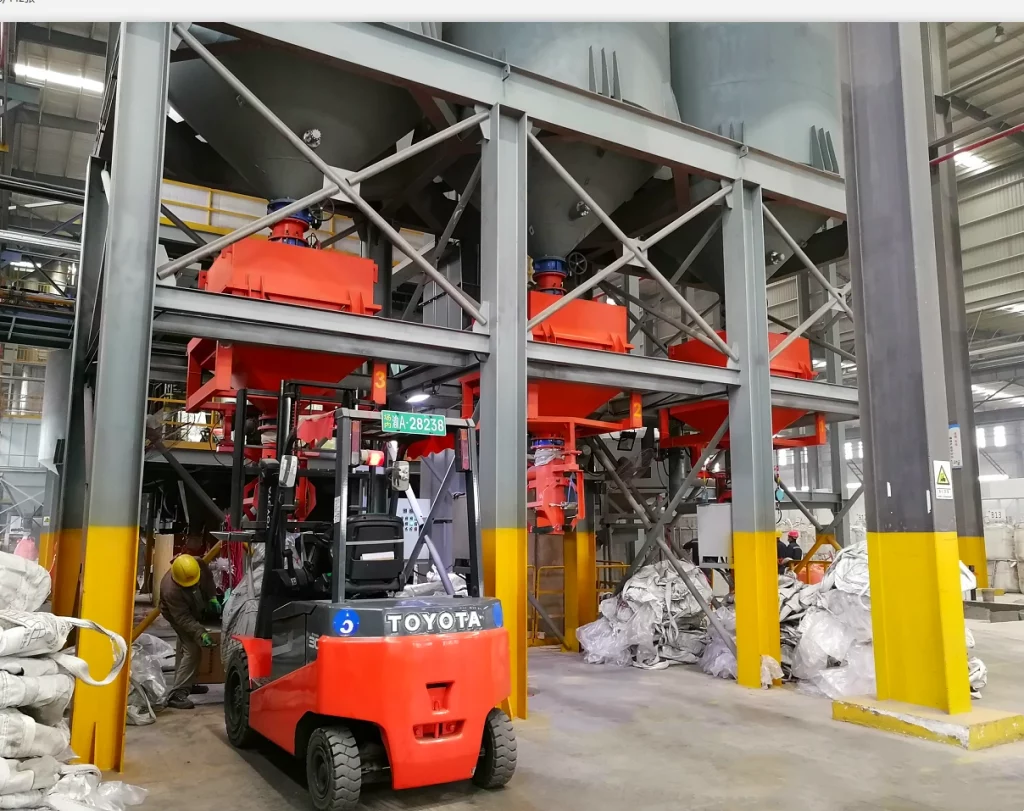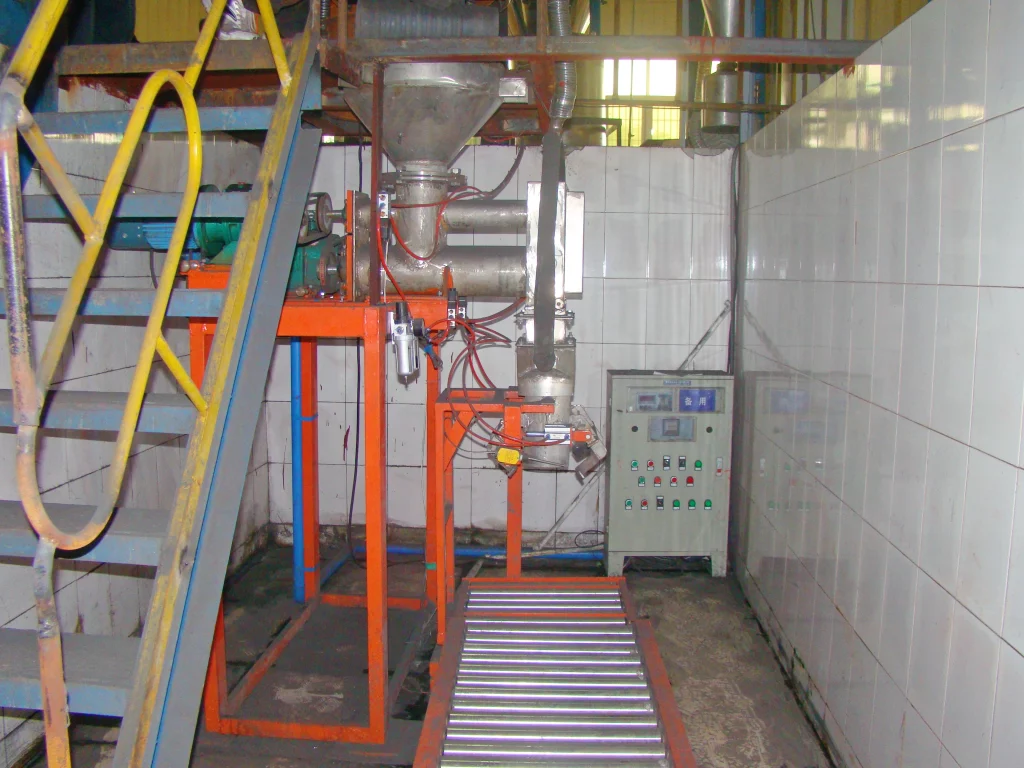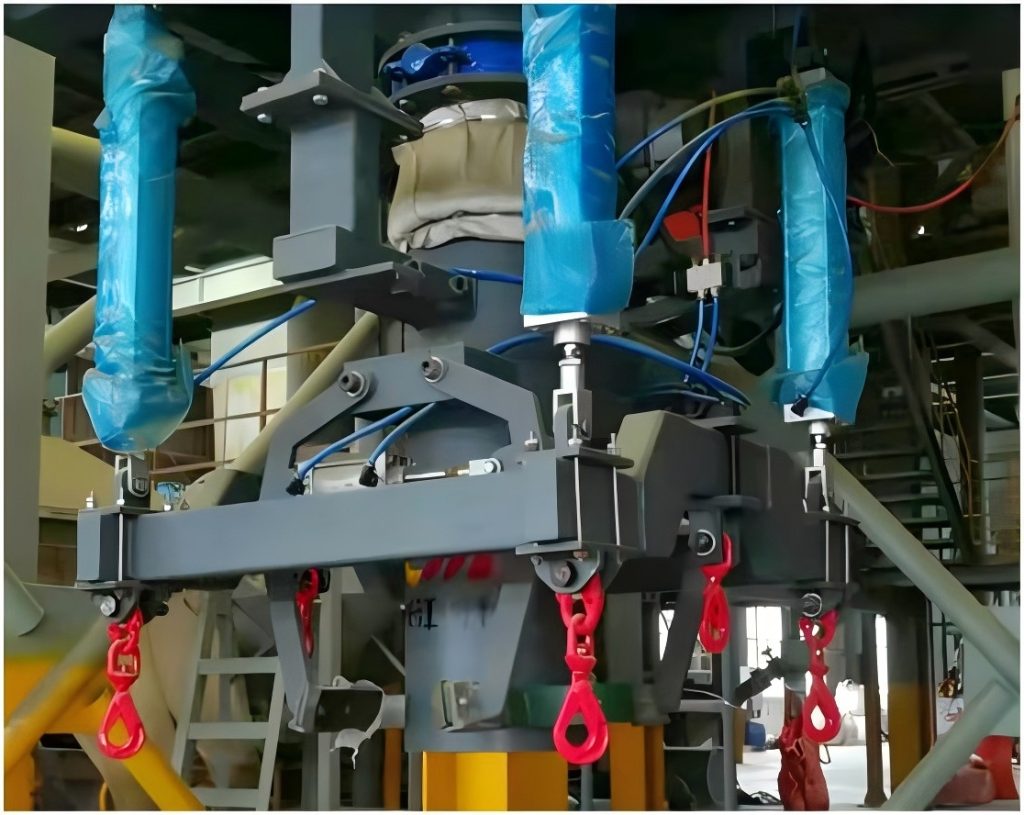How Ton Bag Packing Machines Can Revolutionize Your Bulk Packaging?
In today’s fast-paced industrial environment, efficiency and accuracy are paramount. When it comes to bulk packaging, ton bag packing machines offer a revolutionary solution that can transform your operations. But how exactly do these machines work, and what industries can benefit most? This article dives into the world of ton bag packing machines, exploring their functionality, the industries they empower, and key considerations for choosing the right one for your needs.
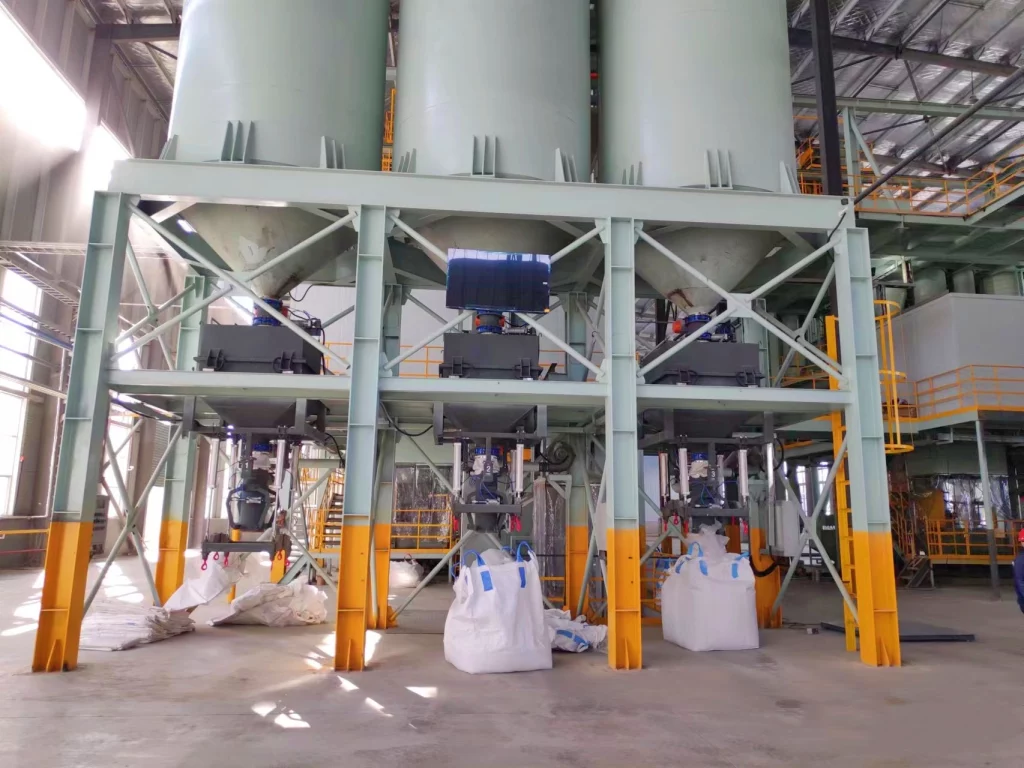
How Ton Bag Packing Machines Work
Ton bag packing machines, or jumbo bag packers, are automated systems designed to efficiently fill large, flexible containers (FIBCs or ton bags) with bulk materials. The process typically involves the following steps:
Bag Placement
The empty ton bag is secured onto a filling head or spout, either manually or through an automated bag handling system.
Filling
Material is fed into the bag using one of several methods:
- Gravity Feeding: Suitable for free-flowing materials, the material falls directly into the bag.
- Screw Feeding: For materials prone to bridging or clumping, a screw mechanism ensures a steady flow.
- Belt Feeding: A conveyor belt transports material into the bag for greater control over flow rate.
Weighing and Control
The machine continuously monitors the bag’s weight and automatically stops filling when the target weight is reached.
Densification (Optional)
Some machines use vibration or compaction to reduce air pockets and maximize bag capacity.
Bag Discharge and Sealing
The filled bag is removed from the filling head, and the top is sealed using heat, sewing, or tying methods.
Through automation, ton bag packing machines enhance accuracy, efficiency, and safety in bulk packaging.
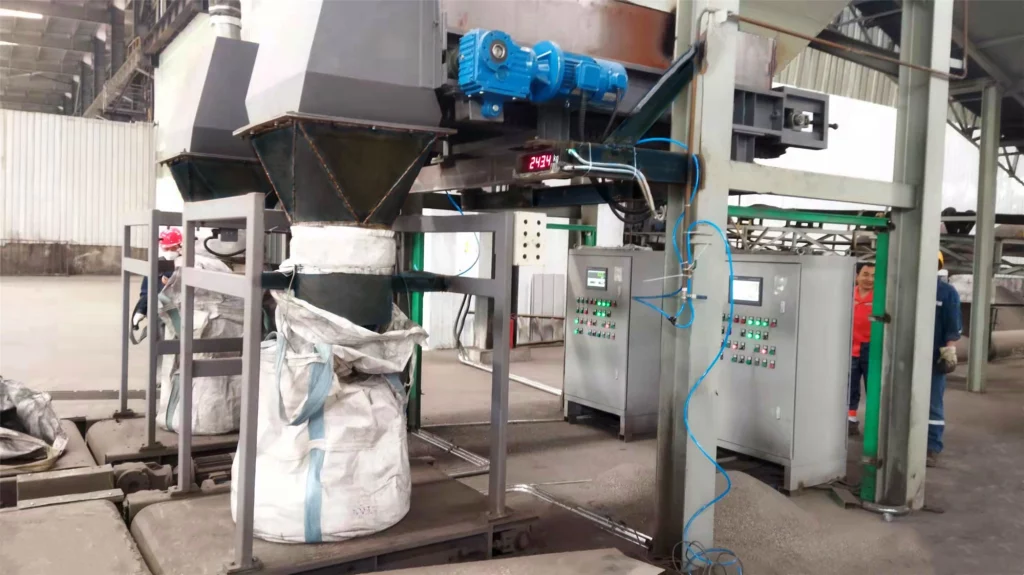
Industries that Can Benefit From Ton Bag Packing Automation
Ton bag packing automation is revolutionizing various industries by streamlining the packaging process for bulk materials. This technology offers significant advantages in terms of efficiency, accuracy, and cost-effectiveness.
Agriculture
The agricultural sector heavily relies on ton bag packing for handling commodities like grains, fertilizers, and animal feed. Automation ensures precise weighing and filling, minimizing waste and enhancing productivity. By optimizing packaging processes, farmers, distributors, and processors can meet growing demands while reducing labor costs.
Chemicals and Pharmaceuticals
Precision and compliance are paramount in the chemical and pharmaceutical industries. Ton bag packing machines excel in handling bulk chemicals, powders, and pharmaceutical ingredients with accuracy and consistency. This automation guarantees product quality, safety, and adherence to stringent regulations.
Construction
The construction industry benefits from efficient handling of bulk materials like cement, sand, and aggregates. Ton bag packing machines provide a cost-effective solution for packaging these materials, improving site logistics and reducing material wastage.
Food and Beverages
From bulk ingredients to finished products, the food and beverage industry leverages ton bag packing for its versatility. Automation ensures hygienic packaging, preserving product freshness and meeting food safety standards. This technology enhances efficiency and reduces costs while maintaining product quality.
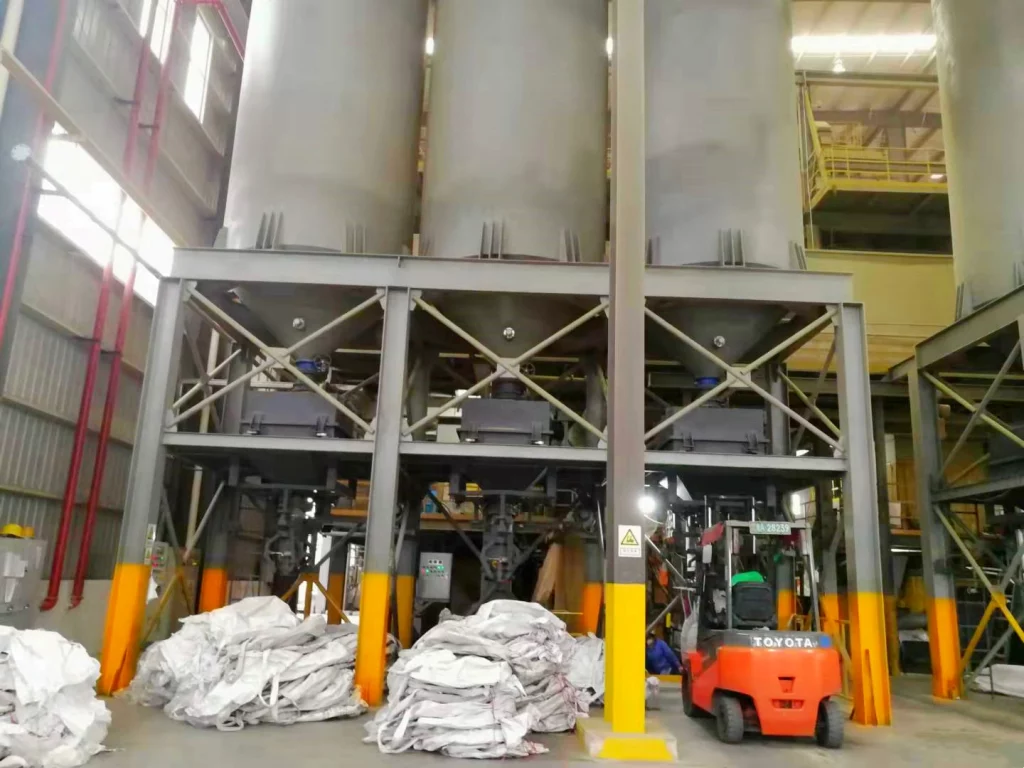
Key Factors in Selecting a Ton Bag Packing Machine
The choice of ton bag packing machine significantly impacts packaging efficiency and productivity. To make an informed decision, several critical factors must be considered:
Capacity and Speed
- Production Volume: Assess your batch sizes and overall output to determine required throughput.
- Speed vs. Cost: Balance high-speed machines’ productivity with their higher cost against your specific needs.
Material Compatibility
- Material Properties: Ensure the machine handles your material’s characteristics (flowability, particle size, moisture content).
- Customization: Consider necessary adjustments like hoppers or agitators for optimal performance.
Sealing Method
- Packaging Requirements: Evaluate sealing needs (tamper-evident, moisture resistance) and choose the appropriate method (stitching, heat sealing, adhesive tape).
- Seal Integrity: Prioritize a machine that guarantees product security.
Flexibility and Customization
- Product Diversity: Opt for machines adaptable to various bag sizes, filling options, and product types.
- Future Needs: Consider the machine’s ability to handle potential changes in packaging requirements.
Reliability and Maintenance
- Machine Quality: Prioritize build quality, manufacturer reputation, and available support.
- Maintenance Ease: Evaluate cleaning, lubrication, and spare part accessibility for uninterrupted operation.
By carefully considering these factors, businesses can select a ton bag packing machine that aligns with their specific needs, optimizing packaging operations for efficiency, productivity, and cost-effectiveness.
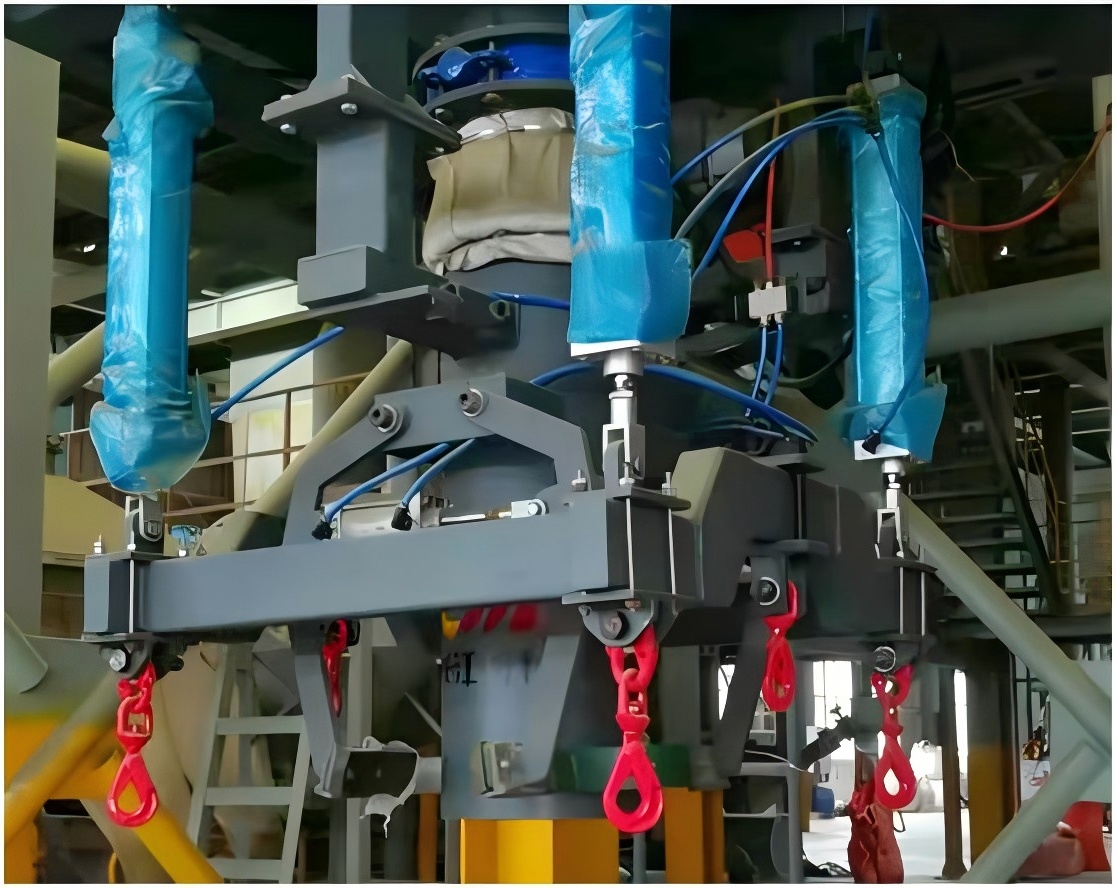
Conclusion
Ton bag packing machines offer a revolutionary approach to bulk packaging, promoting efficiency, accuracy, and safety. By understanding their functionality, the industries they benefit, and the key considerations for selection, you can harness the power of these machines to transform your operations and achieve new levels of productivity.

